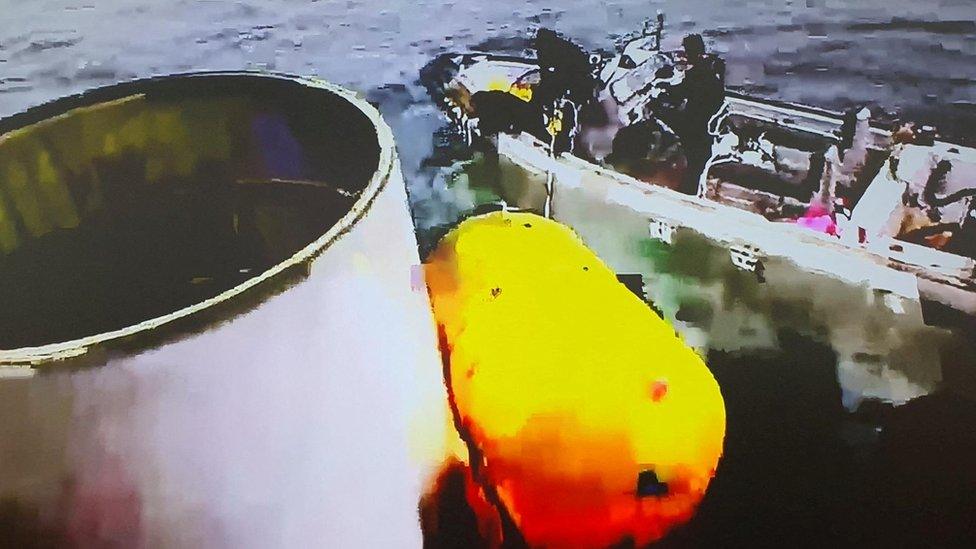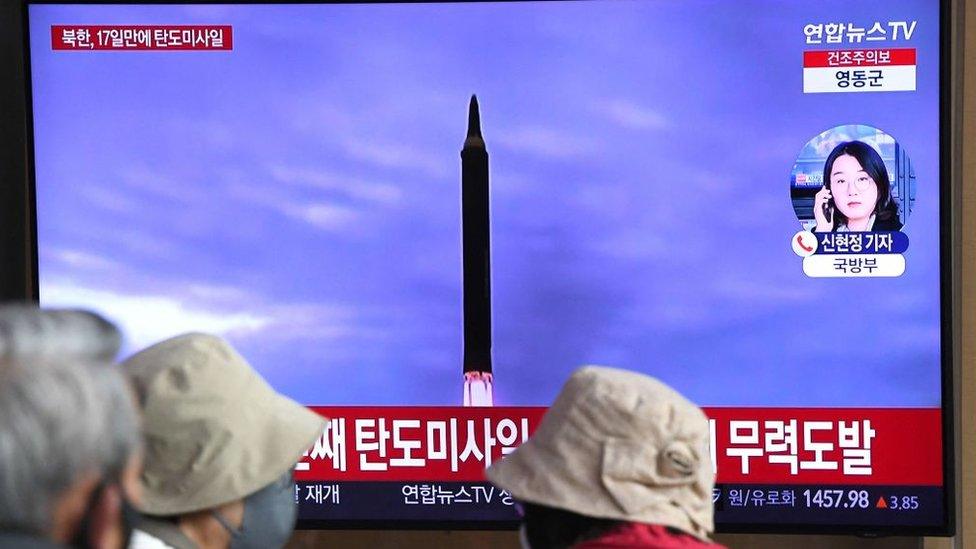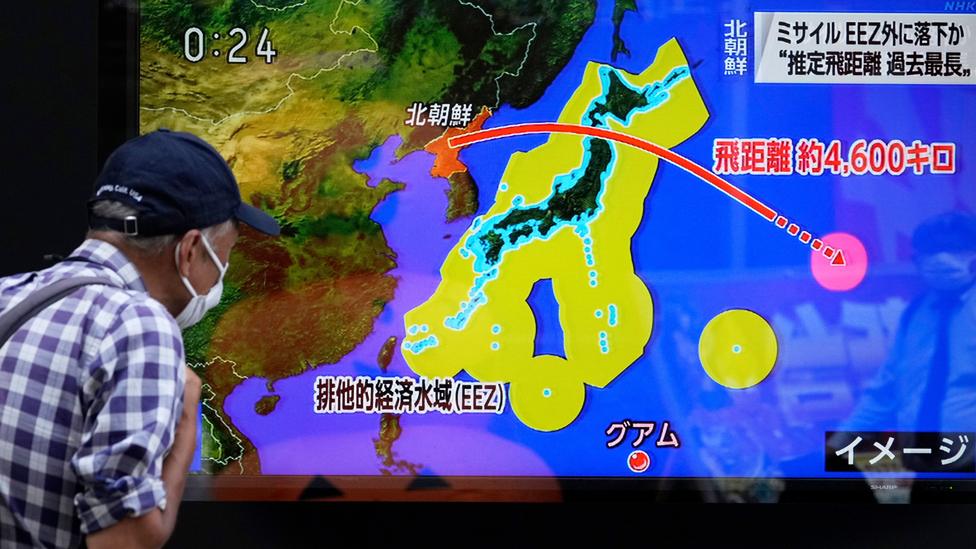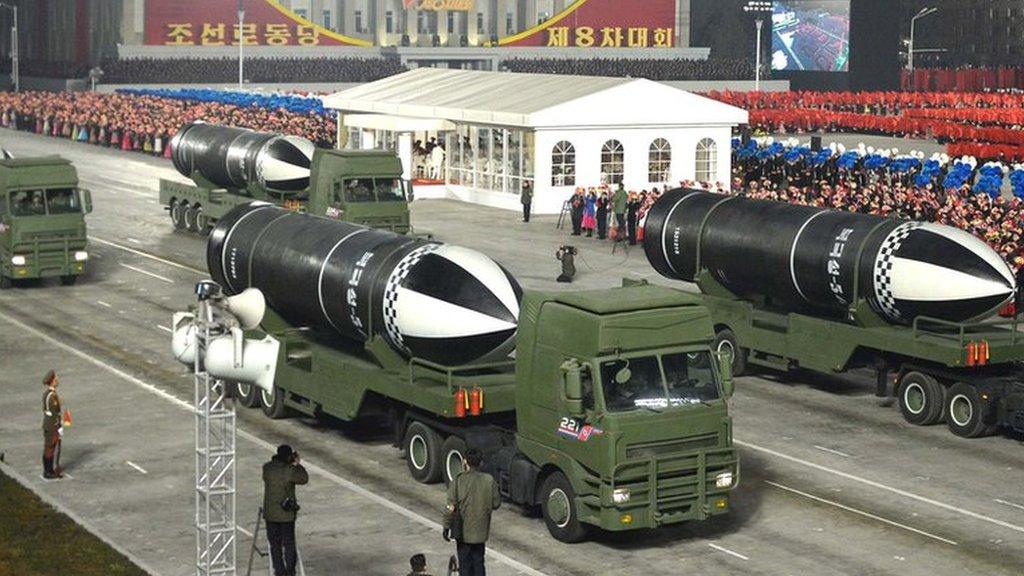North Korea says spy satellite launch crashed into sea
- Published
Watch: Air raid siren worries Seoul residents
North Korea has said an accident happened as it planned to send up its first space satellite, causing it to crash into the sea.
Pyongyang announced earlier it planned to launch a satellite by 11 June to monitor US military activities.
It now says it will attempt a second launch as soon as possible.
The launch sparked a false alarm in the South Korean capital Seoul, while in Japan a warning was issued to residents of Okinawa, in the south.
There was chaos and confusion in Seoul as people awoke to the sound of an air raid siren and an emergency message telling them to prepare for an evacuation - only to be told 20 minutes later it had been sent in error.
The stakes are high on the Korean Peninsula, where tensions have existed between the two countries for 70 years, and this false alarm could seriously damage people's trust in the alert system.
North Korea poses a threat to South Korea, and if there is an alert in the future one question being asked is whether it will be taken seriously, or brushed off as another mistake.
Kim, a 33-year-old mother living in Seoul, told the BBC she was "very scared" when she received the emergency alert and started packing her bags to evacuate.
"I didn't believe there would be a war, but after the war in Ukraine it made me think that North Korea or China might invade [South] Korea," she said, adding she thought Pyongyang had "lost its mind" and launched an invasion.
In a press conference, Seoul mayor Oh Se-hoon acknowledged the emergency text "may have been an overreaction" but said "there can be no compromise on safety".
He said the city would improve its warning system to avoid confusion, AFP news agency reports.

A South Korean handout picture of wreckage in the sea
South Korea's military said the rocket might have broken up in mid-air or crashed after it vanished from radar early. It released pictures of wreckage found in the sea.
Japanese Prime Minister Fumio Kishida said North Korea appeared to have fired a ballistic missile and that the government was analysing the details.
He added that there were currently no reports of damage following the launch. Japan said previously it was ready to shoot down anything that threatened its territory.
On Tuesday, Ri Pyong Chol, vice-chairman of North Korea's ruling party's central military commission, announced the launch plan, saying it was in response to "reckless military acts" by the US and South Korea.
He accused the countries of "openly revealing their reckless ambition for aggression".
The United States joined South Korea and Japan in condemning the launch, calling it a "brazen violation" of multiple UN Security Council resolutions.
"The door has not closed on diplomacy but Pyongyang must immediately cease its provocative actions and instead choose engagement," said Adam Hodge, National Security spokesman.
He added that the US will take "all necessary measures" to protect itself and its allies.
UN secretary general Antonio Guterres also condemned the move, saying any launch by Pyongyang using ballistic missile technology was "contrary" to the relevant security council resolutions.
North Korean leader Kim Jong-un has identified the development of military satellites as a key component of his country's defence.
Leif-Eric Easley, a professor at Ewha University in Seoul, said the North Korean government "likely sees itself in a space race", and that whether or not its current satellite mission is a success it "can be expected to issue political propaganda about its space capabilities".
- Published14 April 2023

- Published5 September 2023

- Published15 January 2021
